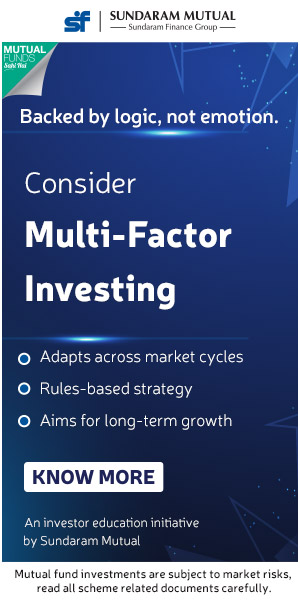Every equity investment is subject to three types of risk – company risk, sector risk and market risk. Company risk and sector risk are unsystematic risk, while market risk is known as systematic risk. Systematic risk is not diversifiable or in other words, uncontrollable. Irrespective of the nature of your equity investment, you will have to bear market risk. Market risk depends on the demand and supply situation in the market and risk sentiments of all investors. For example, even if the company performs well, its share price is likely to fall if the market falls.
Unsystematic risk on the other hand, are additional risks related to specific stocks or sectors, e.g. the stock price of a company may fall if the company’s financial performance is poor, even if the market rises. Similarly, there may be specific risk factors which may affect performance of specific industry sectors but not the market overall. For example, interest rate increase may affect banking, automobiles and real estate sectors, but may not affect the market overall.
The biggest advantage of investing in mutual funds versus stocks is risk diversification. Mutual funds help investors diversify unsystematic risks by investing in a diversified portfolio of stocks across different sectors. If you are investing directly in stocks through your stockbroker, you may need a large capital outlay to create diversified portfolio of stocks. Since mutual funds work on the basis of pooling of money of a large number of investors, risk diversification can be achieved with a much smaller investment amount. In mutual funds unsystematic risk is diversified to a large extent and investors are exposed mostly to market risk. Hence for retail investors, investment risk in mutual funds is much lower than individual stocks.





